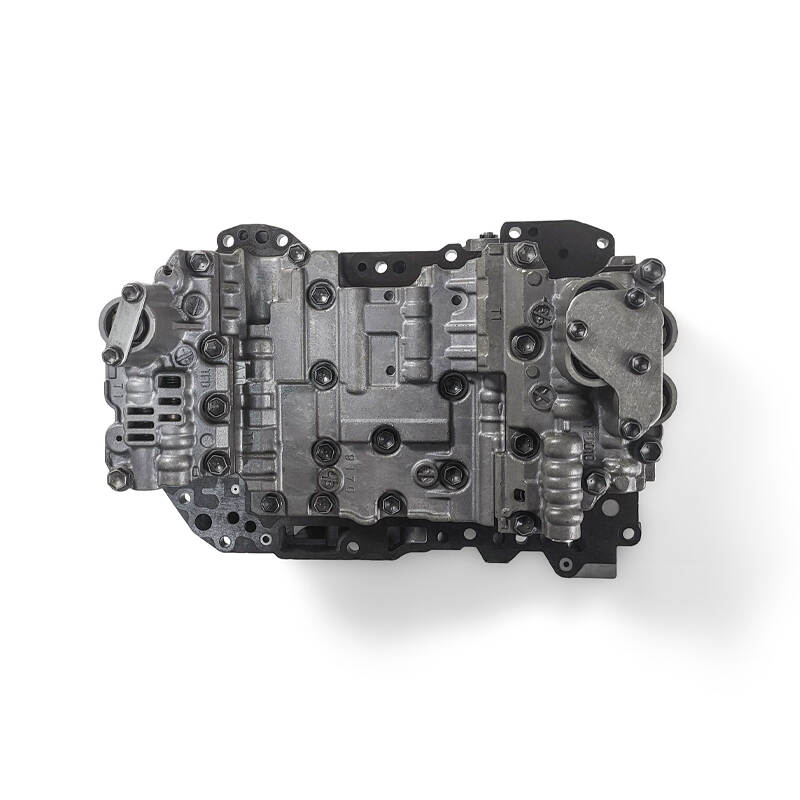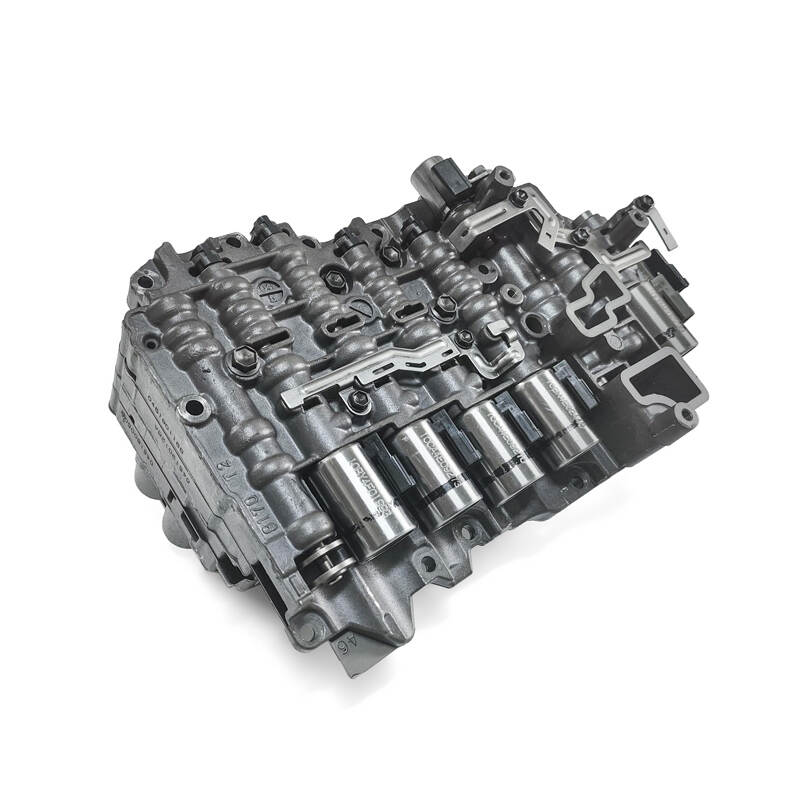
Email format error
Email cannot be empty
Email already exists
6-20 characters(letters plus numbers only)
The password is inconsistent
Email format error
Email cannot be empty
Email does not exist
6-20 characters(letters plus numbers only)
The password is inconsistent


In the ever-evolving world of industrial manufacturing, aluminum valve body factories play a pivotal role in producing high-quality valve components that are essential for a range of industries. These factories are specialized in crafting the aluminum valve bodies that serve as the backbone of various valves used in plumbing, heating, automotive, and other applications. In this comprehensive guide, we will dive deep into the processes, benefits, and importance of aluminum valve body factories, exploring how they contribute to the global supply chain and enhance industrial efficiency.
Aluminum valve bodies are integral components in various valve systems, which control the flow of liquids, gases, and other materials within pipes, machinery, and systems. Aluminum valve body factories are where these essential components are manufactured with precision and expertise. Aluminum, due to its unique properties like corrosion resistance, lightweight nature, and durability, is the material of choice for many industries.
In China, the demand for aluminum valve bodies has surged over the years due to the rapid growth of the industrial and automotive sectors. Aluminum valve body factories in China, for instance, are known for their advanced technology and high production standards, making them a major player in the global market. Whether it's for automotive components, radiator valve kits, or industrial valves, the manufacturing process of these aluminum bodies is meticulous and requires high-level craftsmanship.
Aluminum valve bodies are widely used in numerous industrial applications. From controlling the flow of water in radiators to regulating fuel in automotive engines, these components serve crucial roles. Some common uses include:
● Automotive Applications: Aluminum valve bodies are commonly found in automotive engines, where they regulate fuel, oil, and other fluids. The lightweight nature of aluminum helps reduce the overall weight of the vehicle, enhancing fuel efficiency.
● HVAC Systems: Aluminum valve bodies are essential in heating, ventilation, and air conditioning (HVAC) systems, where they control the flow of refrigerants and air. In modern homes and commercial buildings, efficient HVAC systems depend on high-quality aluminum valve bodies to ensure smooth operation.
● Plumbing and Heating: In plumbing systems, aluminum valve bodies help control water flow, ensuring optimal pressure and temperature regulation. The China radiator valve kits, for example, often use aluminum valve bodies to ensure precise control over the flow of hot water in radiators.
● Industrial Machinery: Many industrial machines rely on valves to regulate the flow of fluids and gases within the system. Aluminum valve bodies are preferred in these applications for their lightweight, cost-effective, and corrosion-resistant properties.
The manufacturing process of aluminum valve bodies involves several intricate steps, each crucial to ensuring that the final product meets the required specifications for durability, functionality, and performance. Here is an overview of the typical process followed in the factories:
The process begins with selecting the right type of aluminum alloy. The alloy's properties, including strength, corrosion resistance, and ease of machining, must match the intended application. Once the material is chosen, it is melted in a furnace, and impurities are removed to ensure a high-quality product.
Once the aluminum has been melted, it is poured into molds to form the basic shape of the valve body. This process, known as casting, is a critical step in ensuring the right dimensions and structure for the final product. The molds are designed to withstand high temperatures and pressures, ensuring precise casting.
After the casting process, the aluminum valve bodies are removed from the molds and undergo machining. This step involves drilling, threading, and milling to create the necessary features such as ports, connections, and mounting points. The aluminum valve body is then subjected to finishing processes, such as polishing or anodizing, to improve surface finish and resistance to corrosion.
In aluminum valve body factories, rigorous quality control processes are followed to ensure the valves meet international standards. This includes leak testing, pressure testing, and dimensional checks. Any defects or deviations from the required specifications are rectified before the valve bodies are approved for shipment.
Aluminum's popularity as a material for valve bodies is largely due to its unique properties. Here are some of the key benefits of using aluminum in valve body manufacturing:
Aluminum is significantly lighter than other metals like steel, which makes it an ideal choice for applications where weight reduction is important, such as automotive manufacturing. Despite its lightness, aluminum is strong enough to withstand high pressure and wear, ensuring the durability of the valve bodies.
One of aluminum’s most notable qualities is its natural corrosion resistance. Aluminum forms an oxide layer when exposed to air, which protects the material from further oxidation. This is particularly important in industries like HVAC, automotive, and plumbing, where valve bodies are exposed to moisture and harsh environments.
Aluminum is relatively inexpensive compared to other metals, making it a cost-effective choice for valve body production. The cost-efficiency is one of the reasons why they remain competitive on a global scale, particularly in regions like China where large-scale production is common.
Aluminum is easier to machine than other metals like stainless steel, which means that valve body factories can produce intricate designs and custom shapes more efficiently. This flexibility allows manufacturers to meet a wide range of specifications.
China is home to some of the largest and most advanced factories in the world. The country’s manufacturing sector has grown exponentially over the past few decades, establishing China as a dominant player in valve body production. Here are some reasons why many industries choose China for aluminum valve body manufacturing:
Chinese aluminum valve body factories invest heavily in state-of-the-art machinery and technology, ensuring that they can produce high-quality valve bodies with precision. Automation and computer-aided design (CAD) tools enable manufacturers to streamline production, reduce human error, and increase overall efficiency.
Due to the scale of production in China, manufacturers can produce large volumes of valve bodies at a fraction of the cost compared to other countries. This is beneficial for companies looking to source high-quality aluminum valve bodies in bulk.
China’s robust manufacturing ecosystem and cost-effective labor contribute to competitive pricing for aluminum valve bodies. Many global companies rely on Chinese factories to produce valve components at lower costs, passing on these savings to their customers.
China has decades of experience in the valve manufacturing industry. The country's factories have honed their expertise in producing aluminum valve bodies, ensuring that the products meet international standards for quality and performance.
Ensuring the quality of aluminum valve bodies is paramount to the success of any manufacturing operation. Aluminum valve body factories employ a range of quality control measures to ensure that each valve body meets the required specifications. This includes:
● Leak Testing: Valve bodies are tested for leaks by pressurizing the system and checking for any signs of leakage.
● Dimensional Checks: Using advanced measuring tools, factories ensure that each valve body is made to the precise specifications, including size, shape, and threading.
● Material Testing: The quality of the aluminum material itself is tested for strength, corrosion resistance, and other key properties to ensure the valve body will perform well in its intended application.

As industries continue to evolve, the demand for high-quality, durable, and cost-effective aluminum valve bodies will only grow. Aluminum valve body factories will continue to play a crucial role in meeting this demand, providing essential components for a wide range of applications, from automotive to industrial machinery.
With China’s growing influence in the global manufacturing landscape, the factories in this region are poised to maintain their competitive edge, delivering high-quality valve bodies that meet the needs of industries worldwide. As technology advances and manufacturing practices improve, we can expect these factories to produce even more innovative, efficient, and sustainable valve components, keeping industries running smoothly for years to come.